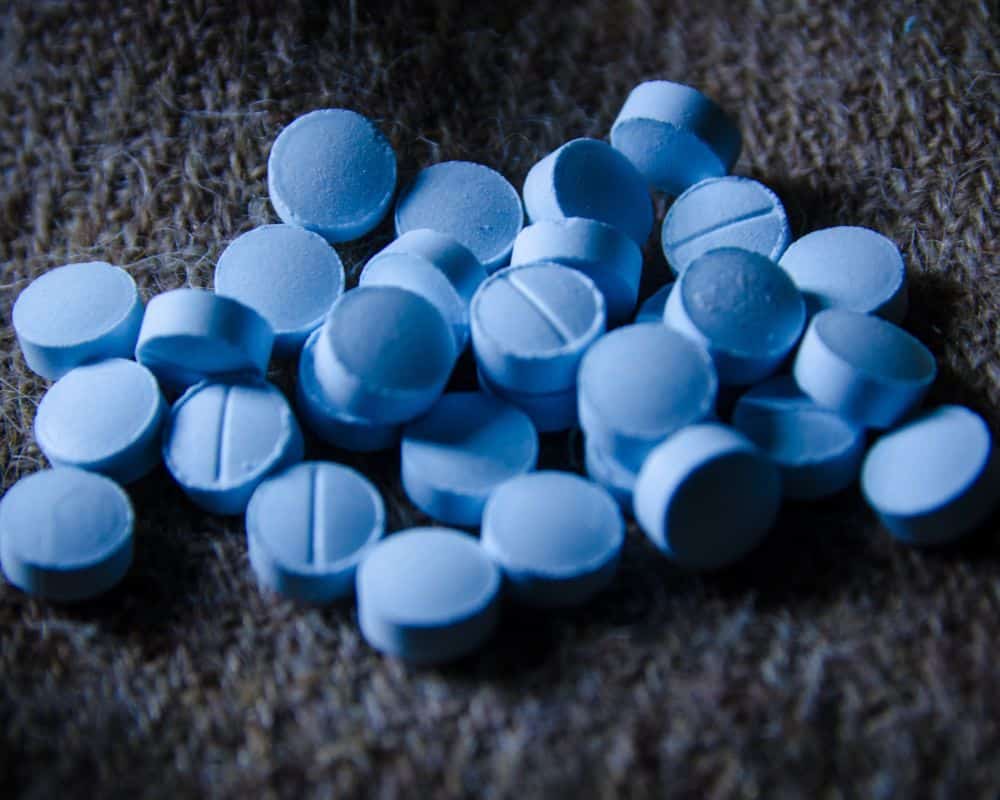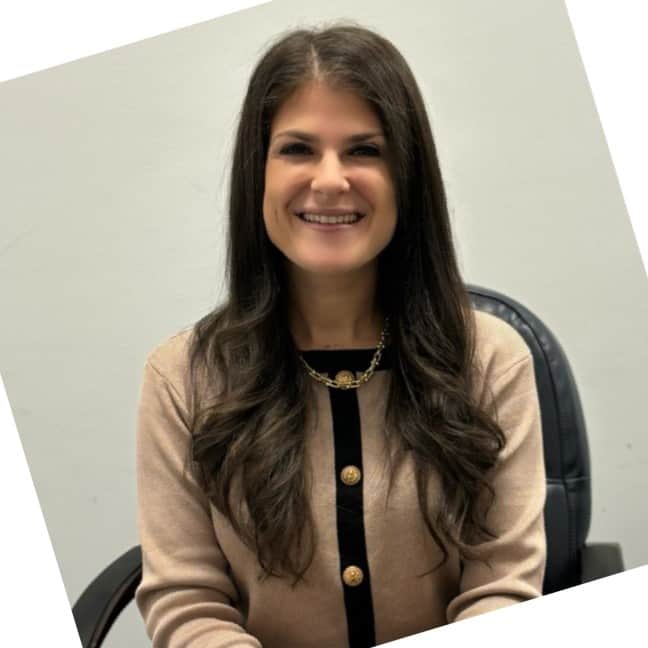Adderall is a prescription stimulant commonly used to treat attention deficit hyperactivity disorder (ADHD) and narcolepsy. While effective when taken as prescribed, Adderall misuse can lead to severe health consequences, including addiction, dependency, and long-term damage to both the body and mind.
Adderall: A Public Health Crisis
The Substance Abuse and Mental Health Services Administration (SAMHSA) identifies substance abuse, particularly prescription stimulants such as Adderall, as a significant public health concern among youth and young adults.
At Right Path Rehab, we aim to educate individuals about the dangers of prescription stimulant abuse and provide effective, empathetic treatment for those struggling with addiction.
How Adderall Works and Its Addictive Potential
Adderall combines amphetamine and dextroamphetamine, which act as central nervous system stimulants. The drug enhances focus, alertness, and energy by increasing dopamine and norepinephrine levels in the brain. For individuals with ADHD, this can lead to improved functioning. However, recreational Adderall users often misuse the drug to stay awake, study, or lose weight, placing themselves at significant risk.
Adderall’s euphoric effects, especially when taken in higher-than-prescribed doses, can quickly lead to physical dependence and psychological addiction. This Adderall dependence makes it one of the most commonly prescribed drugs prone to misuse.
Signs and Symptoms of Adderall Addiction
Early recognition of Adderall misuse is crucial in preventing the development of severe health and lifestyle consequences. Addiction to this prescription stimulant can manifest in various physical, emotional, and behavioral ways. Here’s a closer look at the most common warning signs:
Physical Dependence
Adderall misuse can lead to physical dependence, where the body begins to rely on the drug to function normally. Individuals often experience withdrawal symptoms such as extreme fatigue, depression, irritability, or even flu-like symptoms when they stop taking Adderall. These withdrawal symptoms can make it difficult to quit without professional help, as the body struggles to adjust to functioning without the stimulant.
Tolerance Building
Over time, frequent Adderall misuse can cause the body to build a tolerance, meaning that higher doses are needed to achieve the same effects. This increased dosage not only heightens the risk of addiction but also significantly raises the likelihood of experiencing adverse health effects, such as cardiovascular problems or an overdose.
Obsessive Behaviors
A key behavioral sign of Adderall addiction is the obsession with obtaining, using, or thinking about the drug. Individuals may spend excessive amounts of time planning how to acquire Adderall, whether through doctor shopping, purchasing pills illegally, or stealing from friends or family members. This obsessive behavior can dominate their daily life and push other priorities aside.
Neglecting Responsibilities
Adderall addiction often leads to a decline in personal, professional, and academic responsibilities. Those struggling with addiction may miss deadlines at work or school, fail to maintain relationships or neglect household duties. For college students, this can manifest as prioritizing Adderall use over studying or attending classes, often under the misconception that it enhances academic performance.
Physical Symptoms
Adderall addiction can cause noticeable physical changes. Common symptoms include:
- Insomnia: Difficulty sleeping or staying asleep, often leading to chronic fatigue.
- Rapid Weight Loss: Stimulants suppress appetite, resulting in unhealthy weight loss and nutritional deficiencies.
- Increased Heart Rate: Adderall is a central nervous system stimulant, and prolonged use can lead to irregular heartbeats, chest pain, or palpitations.
Emotional Changes
Adderall misuse can take a toll on mental health. Emotional changes often include:
- Anxiety: Heightened levels of worry, unease, or panic attacks.
- Mood Swings: Sudden and unpredictable emotional shifts, including irritability or anger.
- Aggression: Increased frustration or hostility, which may strain relationships.
Long-term misuse can also exacerbate or lead to new mental health conditions, such as depression or paranoia.
Secrecy and Isolation
Those struggling with Adderall addiction often go to great lengths to hide their drug use. They may avoid social interactions, isolate themselves, or lie about their activities to conceal their dependency. For example, they might claim they’re too busy with work or school when, in reality, they are focused on obtaining or using Adderall.
Why Recognizing the Signs Matters
Understanding the warning signs of Adderall addiction is the first step toward seeking help. If you or a loved one exhibits these symptoms, reaching out to mental health professionals or addiction treatment centers can make a world of difference. Early intervention can help prevent long-term health complications and restore a sense of balance and well-being.

Health Risks Associated with Adderall Misuse
Those who misuse Adderall, especially in combination with other drugs or alcohol, can experience severe health issues, including:
- Cardiovascular Problems: High blood pressure, increased heart rate, and risk of heart attack or stroke.
- Mental Health Deterioration: Long-term misuse can worsen mental disorders such as anxiety, depression, or paranoia.
- Organ Damage: Chronic use may damage the liver, kidneys, and other vital organs.
- Sleep Disorders: Misusing Adderall to stay awake disrupts natural sleep cycles, leading to chronic insomnia.
- Adderall Overdose: Symptoms include chest pain, seizures, and loss of consciousness, which can be life-threatening.
- Increased Risk of Addiction to Other Prescription Stimulants: Those misusing Adderall are at a higher risk of turning to similar prescription drugs.

Adderall Withdrawal Symptoms and Challenges
Adderall withdrawal symptoms can make quitting difficult without professional help. Common withdrawal symptoms include:
- Extreme fatigue
- Depression and mood instability
- Intense cravings
- Insomnia or oversleeping
- Difficulty concentrating
Why Professional Adderall Addiction Treatment is Essential
Attempting to quit Adderall without medical guidance can be overwhelming. Professional treatment ensures that individuals receive care tailored to their specific needs, including:
- Medically Supervised Detox: Alleviating physical withdrawal symptoms in a controlled environment.
- Therapeutic Interventions: Addressing the psychological factors contributing to addiction through individual and group therapy.
- Dual Diagnosis Treatment: For individuals with co-occurring mental health conditions such as anxiety or depression.
- Long-Term Recovery Planning: Equipping clients with strategies to manage triggers and maintain sobriety.

Treatment Options for Adderall Addiction
Adderall addiction requires a comprehensive approach to address both the physical and psychological challenges associated with recovery. At Right Path Rehab, we understand that each individual’s journey is unique, which is why we offer a variety of treatment options tailored to fit different lifestyles and needs.
At Right Path Rehab, we offer several programs to support recovery, including:
Outpatient Treatment
Outpatient treatment provides a flexible approach to recovery, allowing individuals to receive therapy and support while maintaining their daily commitments. This option is ideal for those balancing work, school, or family responsibilities.
- Therapy Sessions: Outpatient programs typically include individual counseling, group therapy, and educational workshops that focus on building coping mechanisms and preventing relapse.
- Accessibility: Clients attend sessions several times a week at convenient times, making it easier to stay engaged in recovery without disrupting their daily routines.
- Supportive Environment: Regular interaction with peers in similar situations fosters a sense of community and accountability.
Inpatient Treatment
For those requiring more intensive care, inpatient treatment offers a structured and supportive environment to focus entirely on recovery.
- 24/7 Medical Supervision: This level of care ensures individuals safely manage withdrawal symptoms, such as fatigue, depression, or irritability, under the guidance of medical professionals.
- Therapeutic Interventions: Inpatient programs include evidence-based therapies like cognitive behavioral therapy (CBT) and motivational interviewing to address the root causes of addiction.
- Safe Space: A residential setting eliminates triggers and distractions, allowing individuals to fully immerse themselves in the healing process.
- Tailored Care Plans: Treatment plans are personalized to each individual’s needs, ensuring the best possible outcomes.
Holistic Approaches
At Right Path Rehab, we believe in treating the whole person, not just the addiction. Holistic therapies are designed to promote emotional, mental, and physical healing.
- Yoga and Meditation: These practices help clients manage stress, improve focus, and reconnect with their inner selves.
- Art and Music Therapy: Creative outlets allow individuals to express emotions and explore feelings that may be difficult to verbalize.
- Nutritional Counseling: Proper nutrition supports physical recovery and helps restore energy levels, especially for those who have experienced rapid weight loss or other health issues due to Adderall misuse.
- Mindfulness Practices: Techniques like guided meditation and breathwork enhance self-awareness and resilience during recovery.
Family Involvement
Addiction affects not only the individual but also their loved ones. Family therapy is a vital component of recovery at Right Path Rehab.
- Healing Relationships: Therapy sessions provide a safe space for families to rebuild trust and improve communication.
- Education: Families learn about the nature of addiction, helping them understand their loved one’s struggles and how to provide effective support.
- Ongoing Support: Involving family members in the recovery process creates a strong support network, which can play a crucial role in maintaining long-term sobriety.
Why Comprehensive Care Matters
Adderall addiction often intertwines with other challenges, such as mental health conditions, emotional trauma, physical dependence, or developing a substance use disorder. Our multi-faceted approach ensures that all aspects of the individual’s well-being are addressed. By combining evidence-based treatments with holistic therapies and family involvement, we empower individuals to achieve sustainable recovery and reclaim their lives.
If you or someone you know is struggling with Adderall addiction, contact Right Path Rehab today to explore our treatment options and take the first step toward a brighter future.

Preventing Misuse of Prescription Stimulants
Education and proactive measures can help reduce the risk of Adderall abuse. Key prevention strategies include:
- Proper Prescription Use: Only take Adderall as prescribed and never share prescriptions.
- Monitoring Medication: Keep track of prescribed doses and avoid increasing them without medical advice.
- Non-Pharmacological Alternatives: Explore cognitive-behavioral therapy, exercise, and mindfulness to manage ADHD symptoms.
- Awareness of Health Risks: Understanding the dangers of misusing Adderall or other prescription medications.

Recovery Strategies for a Healthier Future
Overcoming Adderall addiction requires commitment, support, and ongoing care. Recovery strategies include:
- Continued Therapy: Regular counseling to navigate life after treatment.
- Support Networks: Joining support groups like those offered by American Addiction Centers.
- Healthy Lifestyle Choices: Focusing on proper nutrition, sleep, and exercise to rebuild the body and mind.
- Relapse Prevention: Learning to identify triggers and develop effective coping mechanisms.

Reach Out to Right Path Rehab Today
Adderall addiction and prescription drug abuse are complex conditions, but recovery is achievable with the right approach. At Right Path Rehab, we provide compassionate care tailored to each client’s needs, addressing both the physical and emotional aspects of addiction. By seeking professional treatment and building a strong support system, individuals can regain control of their lives and achieve lasting recovery.
If you or someone you know is struggling with Adderall addiction and looking for a San Diego rehab center, contact Right Path Rehab today to learn more about our treatment options and start the journey toward a healthier future.

